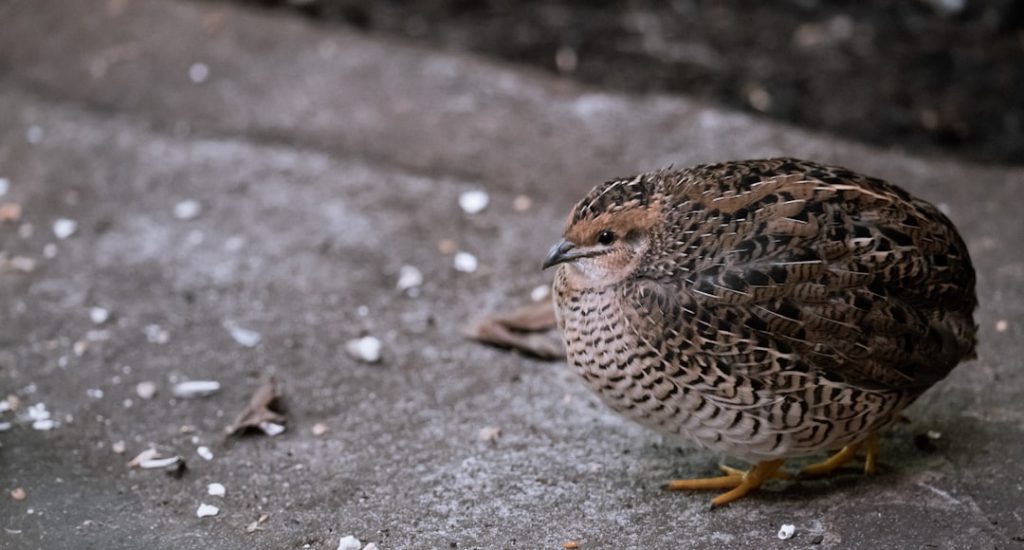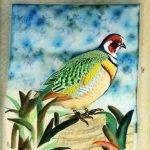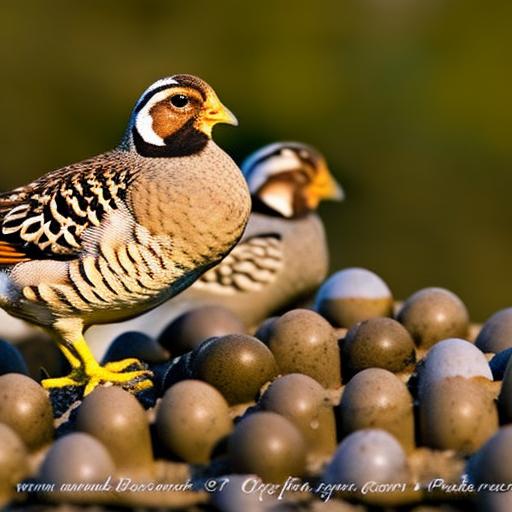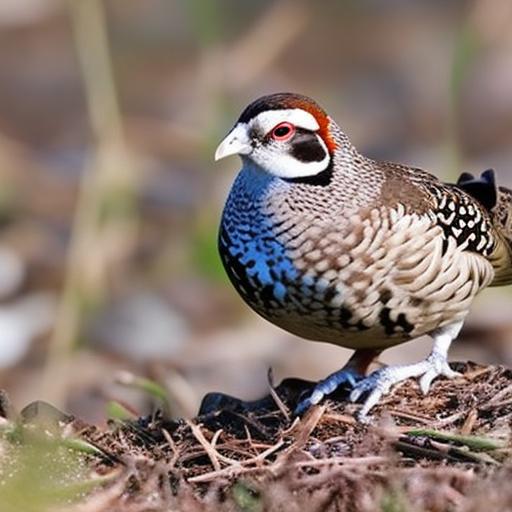Jumbo quail breeding is a lucrative and rewarding venture for those interested in poultry farming. Jumbo quails are known for their fast growth, high egg production, and delicious meat, making them a popular choice for breeders. These birds are easy to manage and require minimal space, making them an ideal option for small-scale farmers and backyard breeders. Jumbo quail breeding can be a profitable business, as there is a high demand for quail eggs and meat in the market. With the right knowledge and resources, breeders can successfully raise and breed jumbo quails for commercial purposes.
Jumbo quails are known for their adaptability to various climates and environments, making them suitable for breeding in different regions. They are also known for their ability to thrive in captivity, making them an excellent choice for those looking to start a quail breeding business. With the right breeding techniques and management practices, breeders can maximize the potential of jumbo quails and produce high-quality eggs and meat for the market. In this article, we will explore the various aspects of jumbo quail breeding, including selecting breeding stock, housing and equipment, breeding and incubation process, care and feeding of chicks, health and disease management, as well as marketing and selling jumbo quail products.
Table of Contents
- 1 Selecting Breeding Stock
- 2 Housing and Equipment for Breeding Jumbo Quail
- 3 Breeding and Incubation Process
- 4 Care and Feeding of Jumbo Quail Chicks
- 5 Health and Disease Management in Jumbo Quail Breeding
- 6 Marketing and Selling Jumbo Quail Products
- 7 FAQs
- 7.1 What is a jumbo quail?
- 7.2 What are the benefits of breeding jumbo quail?
- 7.3 What are the key considerations for breeding jumbo quail?
- 7.4 How long does it take for jumbo quail to reach maturity?
- 7.5 What are the ideal conditions for breeding jumbo quail?
- 7.6 What are some common health issues to watch out for when breeding jumbo quail?
Key Takeaways
- Jumbo quail breeding is a profitable venture that requires proper knowledge and management.
- Select breeding stock based on health, size, and egg production to ensure quality offspring.
- Provide adequate housing and equipment for breeding jumbo quail, including nesting boxes and temperature control.
- Follow a strict breeding and incubation process to maximize hatch rates and ensure healthy chicks.
- Care for jumbo quail chicks by providing proper nutrition, warmth, and protection from predators.
Selecting Breeding Stock
Selecting the right breeding stock is crucial for the success of a jumbo quail breeding operation. Breeders should look for healthy, active, and genetically superior birds to ensure the production of high-quality offspring. When selecting breeding stock, it is important to choose birds that exhibit desirable traits such as fast growth, high egg production, and good temperament. Breeders should also consider the genetic diversity of the breeding stock to prevent inbreeding and maintain the overall health and vigor of the flock.
It is recommended to source breeding stock from reputable suppliers or breeders who can provide documentation of the birds’ health history and genetic background. This will help ensure that the breeding stock is free from diseases and genetic abnormalities that could negatively impact the offspring. Additionally, breeders should regularly assess the performance of their breeding stock and cull any birds that do not meet the desired standards. By carefully selecting and managing the breeding stock, breeders can improve the overall quality of their quail flock and maximize their productivity.
Housing and Equipment for Breeding Jumbo Quail
Proper housing and equipment are essential for the successful breeding of jumbo quails. The housing should provide a comfortable and secure environment for the birds while allowing easy access for management and maintenance. When designing the housing facilities, breeders should consider factors such as ventilation, lighting, temperature control, and protection from predators. The housing should also be spacious enough to accommodate the breeding stock and allow for natural behaviors such as nesting and dust bathing.
In addition to housing, breeders should invest in quality equipment such as feeders, waterers, nesting boxes, and incubators to support the breeding operation. The equipment should be durable, easy to clean, and designed to meet the specific needs of jumbo quails. Proper feeding and watering systems are essential for ensuring the health and productivity of the birds, while nesting boxes are important for providing a suitable environment for egg laying. Incubators are necessary for hatching eggs and should be equipped with accurate temperature and humidity controls to maximize hatch rates.
Breeders should also implement biosecurity measures to prevent the spread of diseases within the breeding facilities. This includes regular cleaning and disinfection of the housing and equipment, as well as restricting access to outsiders and implementing quarantine protocols for new birds. By investing in proper housing and equipment, breeders can create a conducive environment for breeding jumbo quails and ensure the overall success of their operation.
Breeding and Incubation Process
The breeding and incubation process is a critical stage in jumbo quail breeding that requires careful management and attention to detail. Breeding should be carefully planned to ensure optimal mating ratios and genetic diversity within the flock. Breeders should monitor the behavior of the birds to identify mating pairs and ensure that each hen has access to a suitable nesting box for egg laying. It is important to provide a balanced diet and proper nutrition to support the breeding process and maximize fertility rates.
Once the eggs are laid, they should be collected daily and stored in a cool, dry place until they are ready for incubation. Proper handling and storage of the eggs are essential for maintaining their viability and hatchability. When it comes to incubation, breeders can choose between natural incubation by broody hens or artificial incubation using commercial incubators. Artificial incubation allows for greater control over temperature and humidity levels, resulting in more consistent hatch rates.
During the incubation period, breeders should regularly monitor the temperature and humidity levels in the incubator to ensure optimal conditions for embryo development. It is important to handle the eggs with care during turning to prevent damage to the developing embryos. As the hatch date approaches, breeders should be prepared to provide proper care for the newly hatched chicks, including warmth, food, and water. By carefully managing the breeding and incubation process, breeders can maximize hatch rates and produce healthy chicks for their jumbo quail flock.
Care and Feeding of Jumbo Quail Chicks
Proper care and feeding are essential for ensuring the health and growth of jumbo quail chicks. Newly hatched chicks are fragile and require a warm and clean environment to thrive. Breeders should provide a brooder with a heat source such as a heat lamp or heating pad to maintain an appropriate temperature for the chicks. The brooder should also be equipped with feeders and waterers that are easily accessible to the chicks.
When it comes to feeding, breeders should provide a high-quality starter feed specifically formulated for quail chicks. The feed should contain essential nutrients such as protein, vitamins, and minerals to support healthy growth and development. It is important to monitor the chicks’ feed intake and adjust feeding practices as needed to prevent issues such as overeating or undernourishment.
In addition to proper nutrition, breeders should also pay attention to hygiene and sanitation in the brooder to prevent disease outbreaks. Regular cleaning of the brooder and equipment, as well as providing clean bedding material, will help maintain a healthy environment for the chicks. Breeders should also monitor the chicks for any signs of illness or distress and provide prompt medical attention when necessary.
As the chicks grow, they will eventually transition to a grower feed formulated for young quails. This feed will support their continued growth and prepare them for eventual egg production or meat processing. By providing proper care and nutrition, breeders can ensure that their jumbo quail chicks grow into healthy and productive members of their flock.
Health and Disease Management in Jumbo Quail Breeding

Maintaining the health of jumbo quails is essential for ensuring the success of a breeding operation. Breeders should implement proactive measures to prevent disease outbreaks within their flock. This includes regular health checks, vaccination programs (if applicable), biosecurity protocols, and proper sanitation practices. It is important to work with a veterinarian experienced in avian health to develop a comprehensive health management plan tailored to the specific needs of jumbo quails.
Breeders should also be vigilant in monitoring their flock for any signs of illness or abnormal behavior. Common signs of disease in quails include decreased activity, reduced feed intake, respiratory issues, diarrhea, or abnormal feathering. When these signs are observed, breeders should isolate affected birds from the rest of the flock and seek veterinary advice promptly.
In addition to proactive health management, breeders should also be prepared to address common health issues that may arise in jumbo quails. This includes providing appropriate treatment for conditions such as parasites, respiratory infections, or nutritional deficiencies. It is important to use medications and treatments approved for use in quails and follow proper dosage instructions to avoid potential harm to the birds or consumers.
By prioritizing health management practices, breeders can minimize the risk of disease outbreaks and maintain a healthy flock of jumbo quails. This will ultimately contribute to the overall success and sustainability of their breeding operation.
Marketing and Selling Jumbo Quail Products
Once jumbo quails reach maturity, breeders can market their products such as eggs or meat to generate income from their breeding operation. There is a growing demand for quail products due to their nutritional value and unique flavor profile. Breeders can explore various marketing channels such as local farmers’ markets, specialty grocery stores, restaurants, or direct-to-consumer sales through online platforms.
When marketing jumbo quail products, breeders should highlight their quality attributes such as freshness, flavor, nutritional benefits, and ethical farming practices. Providing transparent information about how the quails are raised, fed, and cared for can help build trust with consumers who are increasingly interested in knowing where their food comes from.
In addition to marketing efforts, breeders should also ensure compliance with regulations related to food safety, labeling requirements, and animal welfare standards. This will help build credibility with consumers and ensure that their products meet industry standards.
Overall, successful marketing of jumbo quail products requires a combination of quality production practices, effective branding, strategic pricing strategies, and strong customer relationships. By effectively promoting their products in the market, breeders can capitalize on the growing demand for quail products and achieve profitability from their breeding venture.
In conclusion, jumbo quail breeding offers an exciting opportunity for poultry enthusiasts to engage in a profitable business venture. By focusing on key aspects such as selecting breeding stock, housing and equipment, breeding processes, care and feeding of chicks, health management practices, as well as marketing strategies, breeders can establish a successful jumbo quail breeding operation. With proper knowledge, dedication, and attention to detail, breeders can maximize the potential of jumbo quails and contribute to meeting the demand for high-quality quail products in the market.
If you’re interested in breeding jumbo quail, you might also want to check out Poultry Wizard’s article on “Do Quails Sit on Their Eggs?” This informative piece delves into the nesting behavior of quails and provides valuable insights for anyone looking to breed these fascinating birds. For more expert advice on poultry breeding and care, visit Poultry Wizard.
FAQs
What is a jumbo quail?
Jumbo quail, also known as Japanese quail, are a species of bird commonly raised for their meat and eggs. They are larger in size compared to other quail species and are known for their fast growth and high egg production.
What are the benefits of breeding jumbo quail?
Breeding jumbo quail can provide a sustainable source of meat and eggs. They are relatively easy to care for and can be raised in small spaces, making them a popular choice for backyard farmers and small-scale producers.
What are the key considerations for breeding jumbo quail?
Key considerations for breeding jumbo quail include providing proper housing, nutrition, and care. It is important to ensure that the birds have enough space, access to clean water, and a balanced diet to support their growth and egg production.
How long does it take for jumbo quail to reach maturity?
Jumbo quail typically reach maturity at around 6-8 weeks of age. At this point, they are ready for breeding and can start laying eggs.
What are the ideal conditions for breeding jumbo quail?
Ideal conditions for breeding jumbo quail include a well-ventilated and clean housing environment, access to a balanced diet, and proper lighting to stimulate egg production. It is also important to monitor the birds for any signs of illness or stress.
What are some common health issues to watch out for when breeding jumbo quail?
Common health issues to watch out for when breeding jumbo quail include respiratory infections, parasites, and nutritional deficiencies. It is important to monitor the birds closely and seek veterinary care if any health issues arise.
Meet Walter, the feathered-friend fanatic of Florida! Nestled in the sunshine state, Walter struts through life with his feathered companions, clucking his way to happiness. With a coop that’s fancier than a five-star hotel, he’s the Don Juan of the chicken world. When he’s not teaching his hens to do the cha-cha, you’ll find him in a heated debate with his prized rooster, Sir Clucks-a-Lot. Walter’s poultry passion is no yolk; he’s the sunny-side-up guy you never knew you needed in your flock of friends!







